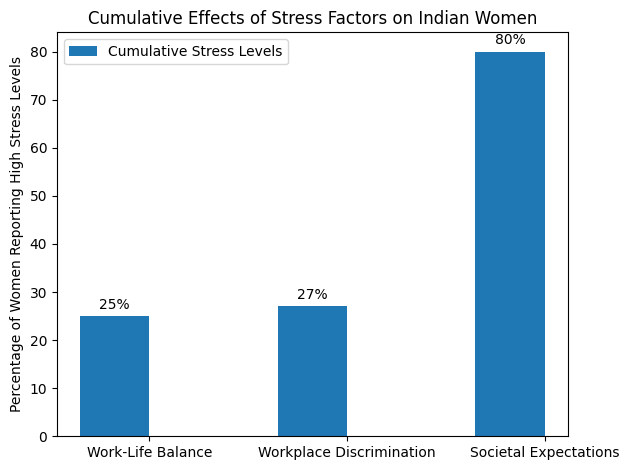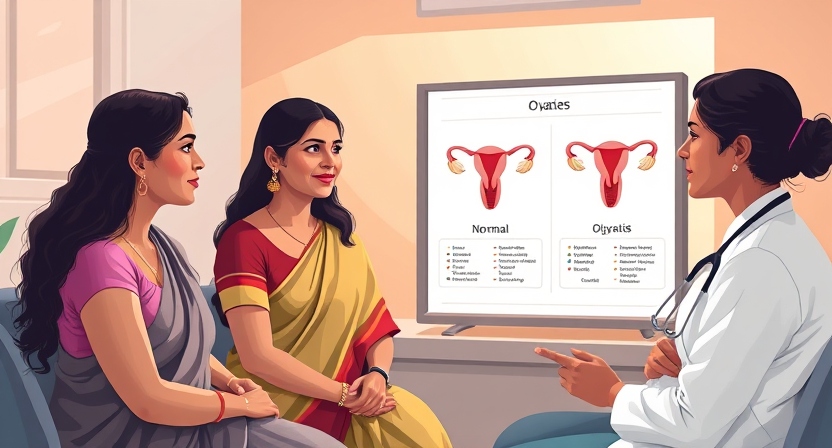
Introduction
In the bustling tapestry of Indian life, women often find themselves juggling multiple roles—be it as caregivers, professionals, or community leaders. This multifaceted existence, while rewarding, can also be a significant source of stress. In this article, we delve into the unique stressors faced by Indian women and explore effective strategies for managing stress, ensuring a balanced and fulfilling life.
| Year | Percentage of Women Reporting High Stress Levels |
|——|————————————————-|
| 2021 | ██████████ 25% |
| 2022 | ████████████ 27% |
| 2023 | ████████████████████████████████ 72.2% |
| 2024 | ████████████████████████████████████████████ 80% |
Understanding Stress in Indian Women
Cultural Expectations and Family Dynamics
Indian culture places a high value on family and community, often leading women to prioritize others’ needs over their own. This selflessness, while admirable, can lead to stress and burnout.
-
- Joint Family Systems: Living in a joint family can mean shared responsibilities but also increased expectations and less personal space. Women may feel obligated to cater to the needs of extended family members, which can lead to emotional exhaustion.
-
- Role of Tradition: Traditional roles can sometimes limit personal growth, adding to stress levels. The expectation to conform to societal norms regarding marriage and motherhood can weigh heavily on women.
Professional Pressures
With more Indian women entering the workforce, balancing professional and personal life has become a common challenge.
-
- Work-Life Balance: The pressure to excel at work while managing household duties can be overwhelming. Many women report feeling inadequate as they struggle to meet both professional expectations and family responsibilities.
-
- Gender Bias: Despite progress, gender bias in the workplace remains a stressor for many women. Discrimination in promotions and pay can lead to feelings of frustration and inadequacy.
Societal Norms and Personal Identity
Navigating societal norms while trying to maintain a personal identity can be a delicate balancing act.
-
- Body Image and Beauty Standards: Societal expectations around beauty can impact self-esteem and lead to stress. Women often feel pressured to conform to unrealistic beauty standards that affect their mental health.
-
- Marriage and Motherhood: The pressure to marry and have children by a certain age can be a significant source of anxiety. Many women face societal scrutiny if they remain single or childless beyond a certain age.
Effective Stress Management Strategies
| Stress Factor | Action | Details |
|---|---|---|
| Work-Life Balance | Set Clear Boundaries | Define specific work hours and personal time to prevent work from encroaching on family life. |
| Schedule Regular Breaks | Take short breaks throughout the day to recharge, helping maintain focus and reduce burnout. | |
| Engage in Hobbies | Dedicate time to activities you enjoy, such as reading or gardening, to unwind and relieve stress. | |
| Workplace Discrimination | Seek Mentorship | Find mentors who can provide guidance and support in navigating workplace challenges and biases. |
| Document Incidents of Discrimination | Keep a record of any discriminatory practices or incidents to address them formally if necessary. | |
| Advocate for Yourself | Speak up about your experiences and push for equitable treatment in the workplace. | |
| Societal Expectations | Challenge Societal Norms | Educate yourself and others about gender equality and advocate for changing traditional expectations. |
| Build a Support Network | Connect with other women facing similar societal pressures to share experiences and coping strategies. | |
| Practice Self-Compassion | Be kind to yourself regarding societal pressures; recognize that it’s okay not to meet every expectation. |
Mindfulness and Meditation
Mindfulness practices, deeply rooted in Indian tradition, can be powerful tools for stress management.

-
- Yoga and Pranayama: Incorporating yoga and breathing exercises into daily routines can help reduce stress and improve mental clarity. These practices not only enhance physical well-being but also promote emotional balance.
-
- Meditation: Regular meditation can enhance emotional resilience and promote a sense of calm. It allows women to reconnect with themselves amidst the chaos of daily life.
Building a Support Network
Having a strong support system is crucial for managing stress effectively.
-
- Family and Friends: Open communication with loved ones can provide emotional support and practical help. Sharing feelings with trusted individuals can alleviate burdens.
-
- Support Groups: Joining groups with similar interests or challenges can offer a sense of community and shared understanding. Connecting with others facing similar stressors fosters solidarity.
Time Management and Prioritization
Learning to manage time effectively can alleviate stress and improve productivity.
-
- Setting Boundaries: Clearly defining personal and professional boundaries can prevent burnout. Women should feel empowered to say no when necessary.
-
- Prioritizing Tasks: Focusing on high-priority tasks and delegating when possible can reduce overwhelm. Utilizing tools like planners or digital calendars can help organize responsibilities efficiently.
Seeking Professional Help
Sometimes, professional guidance is necessary to manage stress effectively.
-
- Therapy and Counseling: Speaking with a mental health professional can provide valuable insights and coping strategies. Therapy offers a safe space for women to explore their feelings.
-
- Workshops and Seminars: Attending stress management workshops can offer practical tools and techniques. Many organizations now provide resources tailored specifically for women’s mental health.
Conclusion
Stress is an inevitable part of life, but it doesn’t have to be overwhelming. By understanding the unique stressors faced by Indian women and implementing effective management strategies, it’s possible to lead a balanced and fulfilling life. Remember that taking care of oneself is not a luxury but a necessity. Prioritize your well-being, and you’ll be better equipped to handle the challenges that come your way.
“Self-care is not a luxury; it is a necessity for a balanced life.”



